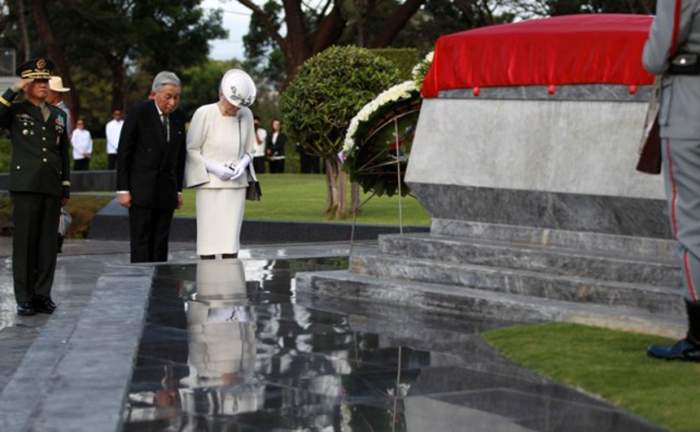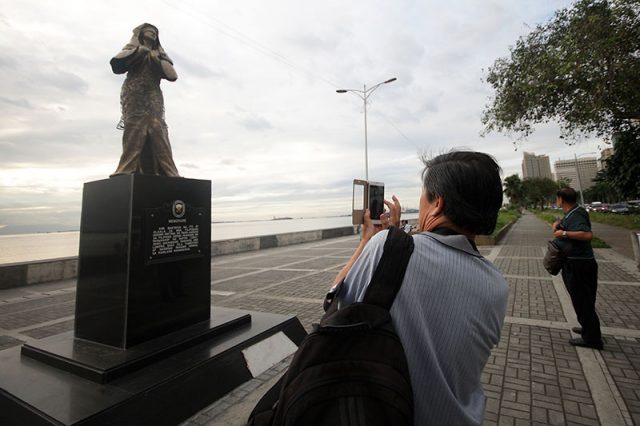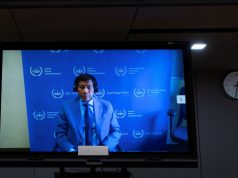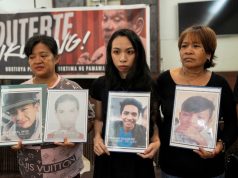President Rodrigo Duterte thinks a memorial to more than 1,000 Filipina sex slaves during the Japanese occupation of the Philippines might “antagonize other nations,” an opposite of how he has recently treated other states.
“We can place it somewhere else. If you want to place it in a private property, fine. Insofar as I am concerned, tapos na iyan (that’s over),” he said, defending the removal.
“The Japanese have paid dearly for that. The reparation started many years ago. Let us not insult them. It is not the policy of the government to antagonize other nations,” Duterte added.
The DPWH, however, cited a flood control project along Baywalk as the reason why the statue was removed.
Du30 on the removal of the comfort women statue:
“It’s not our policy to antagonize other nations”
Also Du30: “Go to hell, EU!”
Also Du30: “USA will collapse one day because of its multi-racial thing”
Also Du30 trolls and allies: “Sorry not sorry, Kuwait”— Kip Oebanda (@kipoebanda) April 29, 2018
Japan and comfort women
In December 2017, Japan questioned the comfort woman statue that would be placed along Roxas Boulevard.
DFA Assistant Secretary Millicent Cruz-Paredes said: “They (Japan) said they regret that despite the strong ties between the Philippines and Japan, a comfort woman statue has been suddenly erected in Manila.”
Two years ago, Japan’s Emperor Akihito visited the country and paid his respects to a WWII war memorial in honor of the Filipinos who have died.

While the gesture was symbolic, he did not state a formal apology for the plight of the comfort women.
Rep. Arlene Brosas of women’s rights group Gabriela condemned the removal, saying: “We will file a resolution in the House of Representatives calling for an investigation into the removal of the statue. We are not buying the excuse that it was done to give way to a drainage improvement project.”
A look at Duterte’s relations with other states
Recently, the Philippine ambassador to Kuwait was declared persona non grata after the embassy conducted rescue operations for Filipina domestic helpers and released a video to the public.
Kuwait said that the move was a “flagrant” breach of rules and regulations that govern diplomatic actions.
Duterte retaliated by announcing a “permanent deployment ban” of Filipinos to Kuwait.
The president also deported Giacomo Filibeck, a deputy secretary general of The Party of European Socialists, for violating the Philippines’ immigration law.
The party insisted that Filibeck is an official tasked to investigate the extrajudicial killings under the Duterte administration.
According to Asia Times, the deportation might have “grave economic impacts” on the Philippines since the European Parliament has threatened to temporarily withdraw its preferential trading agreement with the country.
Duterte’s spokesperson, Harry Roque, also condemned the U.S. when it released its Intelligence Community Worldwide Threat Assessment report that tagged Duterte as an “autocrat.”
As a result, the president summoned Executive Secretary Salvador Medialdea to have a meeting with U.S ambassador Sung Kim over the matter.










